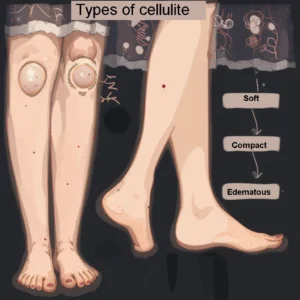

Real Postoperative Experiences No One Tells You About
Real Postoperative Experiences No One Tells You About
Real postoperative experiences are much more than simple anecdotes. In fact, they are meaningful experiences that accurately reflect what happens after surgery, and which are often not mentioned in medical consultations. Although it’s true that every body is different, many patients share similar feelings of uncertainty, anxiety, or surprise during their recovery process.
For this reason, and in order to help you, knowing these stories can help you better prepare, both physically and emotionally. Furthermore, having detailed and personal information helps reduce fear, strengthen confidence, and facilitate adaptation to the process.
1. Why it’s important to know about real postoperative experiences

Talking openly about the postoperative period from a real and human perspective is, without a doubt, essential. In most cases, medical brochures tend to focus exclusively on technical data. However, personal experience offers a much more complete and emotionally meaningful picture. On the other hand, and for everyone’s benefit, listening to testimonials allows other patients to feel understood and supported. Furthermore, it helps anticipate everyday situations such as pain, reduced mobility, or emotional changes, which are a fundamental part of the recovery process.
In many cases, patients say they weren’t fully prepared for the minor daily challenges that arise after surgery. Therefore, sharing experiences helps normalize the diversity of the body’s reactions. Although not everything is the same for everyone, there are common patterns that are frequently repeated. And, if that weren’t enough, feeling supported significantly improves mood.
2. Main difficulties experienced in the postoperative period
The postoperative period can be challenging on several levels. Therefore, below are some of the most common difficulties that patients often experience:
- Persistent pain, even with medication.
- Extreme tiredness or constant fatigue for several days.
- Difficulty sleeping properly.
- Noticeable changes in mood (anxiety, sadness, irritability).
- Digestive problems resulting from the procedure or medications.
- Unexpected reactions such as nausea after anesthesia.
Even when the surgical procedure has been considered successful, these effects can last for weeks. In many cases, the actual length of the recovery period is underestimated. Therefore, patience becomes an indispensable virtue. Furthermore, talking about these aspects openly allows patients not to feel isolated in their process. Sharing is, without a doubt, a powerful tool for emotional healing.
3. Testimonials: Real Postoperative Patient Experiences
This section shares true cases that illustrate different realities. Each one presents a unique nuance, although all are equally valid and enriching. They also reflect different ways of experiencing an experience as delicate as surgery.
Ana, 34, gallbladder surgery: “I thought I could resume my routine in a week. However, the fatigue was so overwhelming that it took me almost a month. I felt guilty for not moving forward quickly, until I understood that my body needed time.”
Carlos, 51, lumbar hernia: “The pain limited me in everything. Even walking to the bathroom was a challenge. Not much is said about the emotional dependence one can feel. Fortunately, my family was my greatest support.”
Lucía, 28, cosmetic surgery: “Physically, I recovered well, but emotionally, it was complex. I had high expectations, and comparing myself to other people on social media affected me. I learned to value my process and let go of comparisons.”
These testimonials are representative of a spectrum of experiences that are definitely worth sharing. After all, sharing strengthens and empowers.
4. Practical tips for coping with the postoperative period
Preparing yourself both mentally and logistically for the postoperative period can make a big difference. Therefore, here is a list of useful suggestions that might help you:
- Organize your space before surgery to have everything within easy reach.
- Ask family or friends for help during the first few days, especially with basic tasks.
- Respect your rest and avoid overexerting yourself too soon.
- Follow medical instructions carefully, without omitting any details.
- Consult if you have any concerns, and avoid self-medicating.
- Keep a symptom diary to clearly report them to your doctor.
- Maintain a balanced diet tailored to your specific needs.
Applying these recommendations can facilitate a more comfortable, safe, and informed recovery. Furthermore, having a plan improves the sense of control during an uncertain process.
5. Mental Health: A Forgotten Component of the Postoperative Care
The emotional impact of surgery is rarely addressed. However, real-life postoperative experiences demonstrate that mental well-being must be an active part of comprehensive care. Mood swings, bouts of depression, or even identity crises can arise after the procedure.
Therefore, it is important to have professional support if negative feelings linger. Physical recovery is not enough. A holistic approach guarantees better long-term results. Furthermore, including mental health in the postoperative plan can prevent unnecessary emotional complications. This way, the patient is cared for as a whole.
6. Common Myths That Real-Life Postoperative Experiences Debunk
Many misconceptions about the postoperative period circulate in popular culture. Fortunately, real stories help effectively correct these beliefs:
- “Everything will be back to normal in a week”: False. Every body has its own healing pace.
- “The pain is always mild”: Not necessarily. It can vary widely from case to case.
- “If you don’t get better quickly, something went wrong”: Not necessarily. Some recoveries are slower, but they’re still normal.
Challenging these myths allows more people to prepare with realistic expectations. It also fosters a much more informed, empathetic, and collaborative culture of care. This builds a stronger and more solid support network.
7. Value real postoperative experiences
Real postoperative experiences offer a human and profound insight into what surgery entails. It’s not just about healing physically, but about going through a comprehensive process that affects the body and mind together. Sharing these experiences opens the door to understanding, patience, and, of course, self-care.
If you’re about to undergo surgery or are currently in the midst of recovery, remember that you are not alone. Listening to and reading these stories can give you clarity, inner strength, and a more realistic perspective. With accurate information, human support, and time, recovery is not only possible, but much more manageable. Therefore, educate yourself, support yourself, and trust in your journey.
Explore other related articles by clicking here and Visit the official website here




